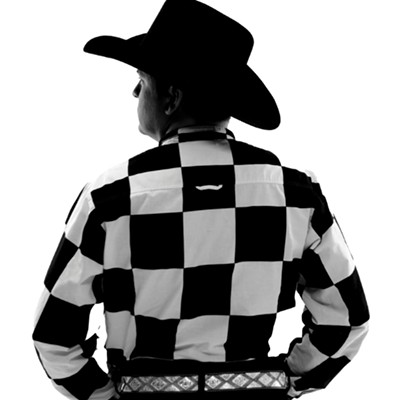Despite what a lot of people seem to think, movies and books are two different things. Whether they're books from the "Harry Potter" series, the pseudo-Goth chick flick "Twilight," or the current adaptation of "Watchmen," there is always a crowd of pale, housebound dingleberries floating around the blogosphere who can't stop splitting the hairs that weren't included in the big-screen version of their favorite print masterpiece.
"Watchmen" is based on what is considered the most critically acclaimed graphic novel. Published in the 1980s just after the peak of Cold War nuclear paranoia, "Watchmen" synthesized the dark atmosphere lurking under the surfeit of pop-culture pap. Various attempts at a movie adaptation have been failing ever since. Some of those involved, including original author Alan Moore, are pissed off that this current version even exists.
It's no wonder it took so long to get the project going, because "Watchmen" covers a lot of ground. The story begins in an alternate-universe 1985 with the murder of Edward Blake (Jeffrey Dean Morgan, TV's "Grey's Anatomy"), who is also known in some circles as a superhero named The Comedian. Only a few know his secret identity, including Rorschach (the excellent Jackie Earle Haley, "Semi-Pro"), another masked hero of sorts. Rorschach suspects someone is targeting retired heroes, but he doesn't know why. To find out, he makes the rounds of his old acquaintances, including Dan "Nite Owl" Dreiberg (Patrick Wilson, "Lakeview Terrace"), Jon "Dr. Manhattan" Osterman (Billy Crudup, "The Good Shepherd") and Laurie "Silk Spectre" Jupiter (Malin Akerman, "27 Dresses"). Rorschach's old pals "? all veterans of a superhero collective called the Watchmen "? are living in private retirement.
WATCHMEN IDENTITIES
The only publicly known Watchmen identities are Dr. Manhattan and Adrian "Ozymandias" Veidt (Matthew Goode, "Brideshead Revisited"). Veidt has used his superhero celebrity to amass a fortune he's using along with Dr. Manhattan to develop an unlimited renewable energy source, which he hopes will bring the U.S. and the Soviet Union back from the brink of full-on nuclear war.
One of "Watchmen's" major themes is the heroes' lives "behind the hood." Dr. Manhattan and Silk Spectre are lovers, but his increasing emotional distance is pushing her away. Manhattan can somehow see his own past and future simultaneously, and he's beginning to feel that humanity's savagery is negating his desire to save it. Each character has his (or her) own set of ideas about how to solve the world's problems, ranging from the cynically defeatist (The Comedian) to idealistic and romantic (Nite Owl and Silk Spectre) to purely rationalist (Ozymandias).
As the characters "? with their differing value systems, worldviews, and personal problems "? interact, they slowly unravel what's really going on. It's no surprise that what's really happening is no good for anyone, and it wouldn't spoil too much to say that "Watchmen" doesn't have a superhero ending in which the good guys prevail and the villain is banished in magnificent style.
This is because "Watchmen" is a deconstruction of superhero mythology in the service of illustrating its opposite: fallible humanity and the continuing struggle between the base and higher parts of our nature. Superheroes were created as a representation of the best in us, and these guys definitely don't fit that bill. There is plenty of self-doubt, defeatist thinking and plain old antagonism to destroy any preconceived notions of how superheroes are supposed to act.
"Watchmen" isn't good because it's true to its source material. It's good because it illustrates that people need all of their conflicting personality traits to survive. We can't make it on pure emotion, just as we can't make it on pure rationalism. In our current political moment, in which we're discovering that the balanced middle road is most likely the clearest and widest, this message is especially relevant.
The endless debating in the fanboy Web forums about the omission of a certain sizable cephalopod from the ending is, indeed, splitting hairs. The fact is: It doesn't matter. The "Watchmen" movie is a bit different from the "Watchmen" comic book, but only in the execution of a few specifics, but the spirit is intact. Director Zach Snyder ("300"), who has been attacked for even daring to make a movie version of this hallowed nerd-burger classic, has led the creation of something visually stunning, well-plotted, well-acted and complete "? rare for any movie, no matter the source material.
"?Mike Robertson









